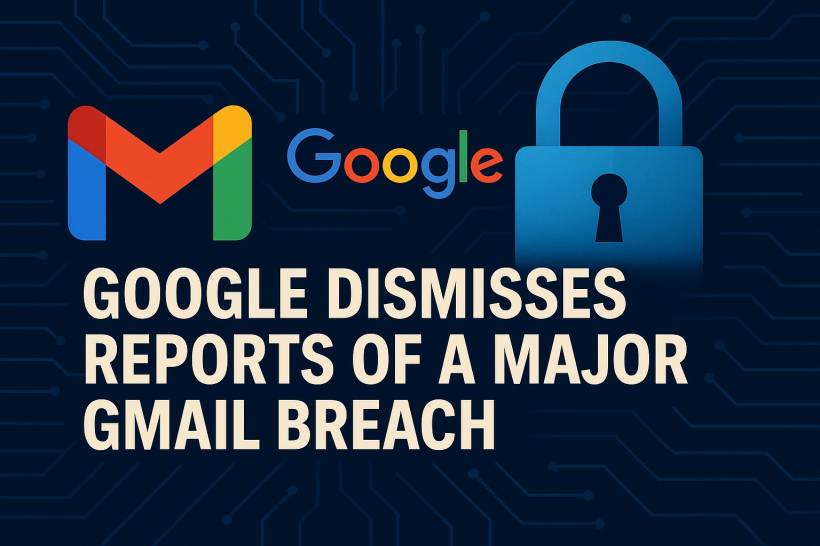When rumors start circulating about millions of Gmail accounts being compromised, it's easy for panic to set in. Over the past few days, several online posts and forums have suggested that a huge trove of Gmail passwords had leaked — but according to Google, those claims are completely unfounded.
What Sparked the Panic
It all began when a massive 3.5-terabyte data dump surfaced online, reportedly containing around 183 million email credentials. Cybersecurity researcher Troy Hunt, the creator of the well-known breach notification platform Have I Been Pwned, examined the files and confirmed they included a wide range of email addresses from various providers, possibly including Gmail.
The discovery quickly went viral after The New York Times reported on it, sparking speculation that Gmail had suffered a fresh data breach. Social media soon filled with warnings urging users to change their passwords immediately — but as it turns out, the situation wasn't quite what it seemed.
Google's Firm Response
In a statement posted on its official News from Google account on X (formerly Twitter), the company was quick to shut down the rumors.
The tech giant explained that the reports stemmed from a misinterpretation of old, recycled data — not from any new hack of Gmail or Google systems. What people were seeing, Google said, were "infostealer databases" — large compilations of login credentials stolen from various older breaches, repackaged and circulated as though they were new.
Understanding "Infostealer Databases"
These so-called databases are a growing issue in cybersecurity. They're typically assembled by malicious actors who scrape credentials from multiple historical breaches, merging them into one massive dataset. When such lists resurface, it can easily appear as though a new breach has occurred — even when the data is years old.
Google clarified that the data in question was not from any new compromise of Gmail or other Google services. Instead, the company emphasized that it continuously monitors the web for leaked credentials, and when it detects potential exposure involving its users, it proactively triggers account protection measures, including forced password resets.
What Users Should Do Now
While Gmail itself remains secure, Google used the opportunity to remind users of good security hygiene. Even if your Gmail account hasn't been breached, it's still smart to take a few extra steps to stay safe online.
Here's what Google recommends:
The company also reaffirmed that its automated systems are always on the lookout for large-scale credential dumps. When any potential exposure is detected, Gmail's security infrastructure steps in to secure affected accounts as quickly as possible.
The Bigger Picture: Why Old Leaks Keep Coming Back
The reappearance of old breach data isn't unusual. Cybercriminals often repackage historic leaks under new names to attract attention or sell them on underground forums. Each time this happens, media outlets and social media users sometimes mistake it for a new incident — creating unnecessary panic.
Experts say this underscores the importance of tools like Have I Been Pwned, which help users check if their email addresses have ever been part of a known breach. By verifying the origin of leaked credentials, it becomes easier to distinguish between recycled data and genuine new threats.
Staying Vigilant in an Age of Data Recycling
The Gmail "breach" that wasn't serves as a timely reminder of how disinformation and misunderstanding can spread faster than facts. In today's landscape — where cybersecurity news travels instantly — it's critical for users to stay calm, verify claims, and rely on official channels before taking drastic action.
Google's quick clarification helped quell widespread fear, but the episode reinforces an important lesson: cybersecurity isn't just about preventing hacks — it's also about preventing misinformation.




